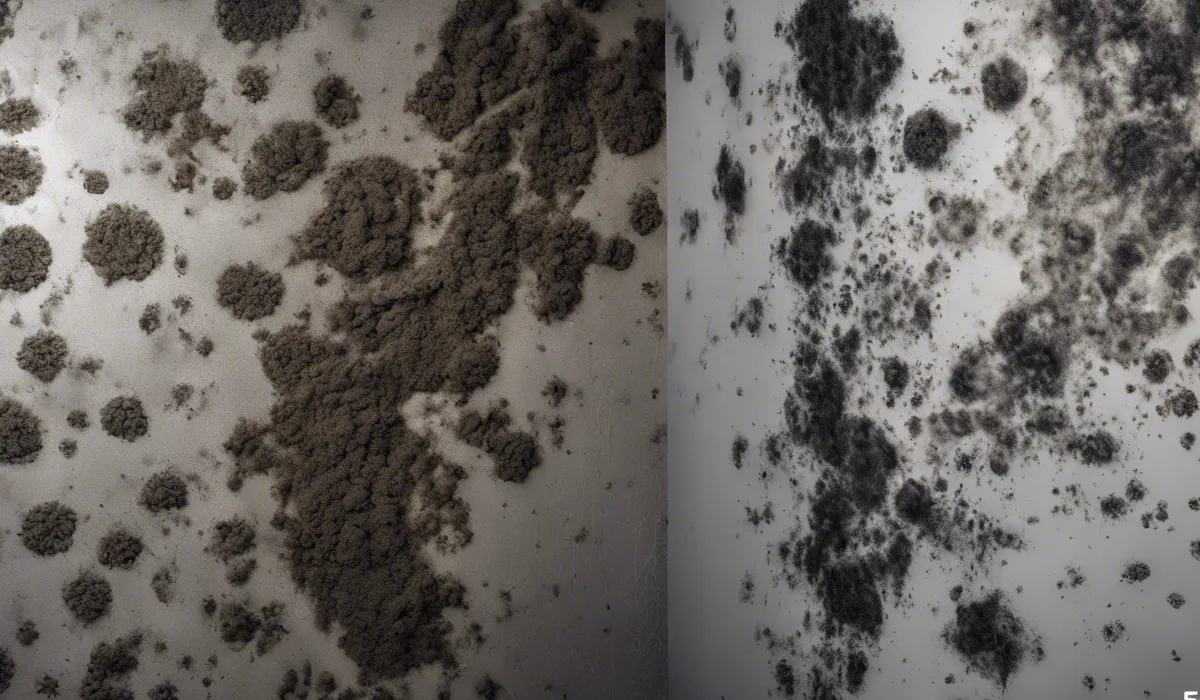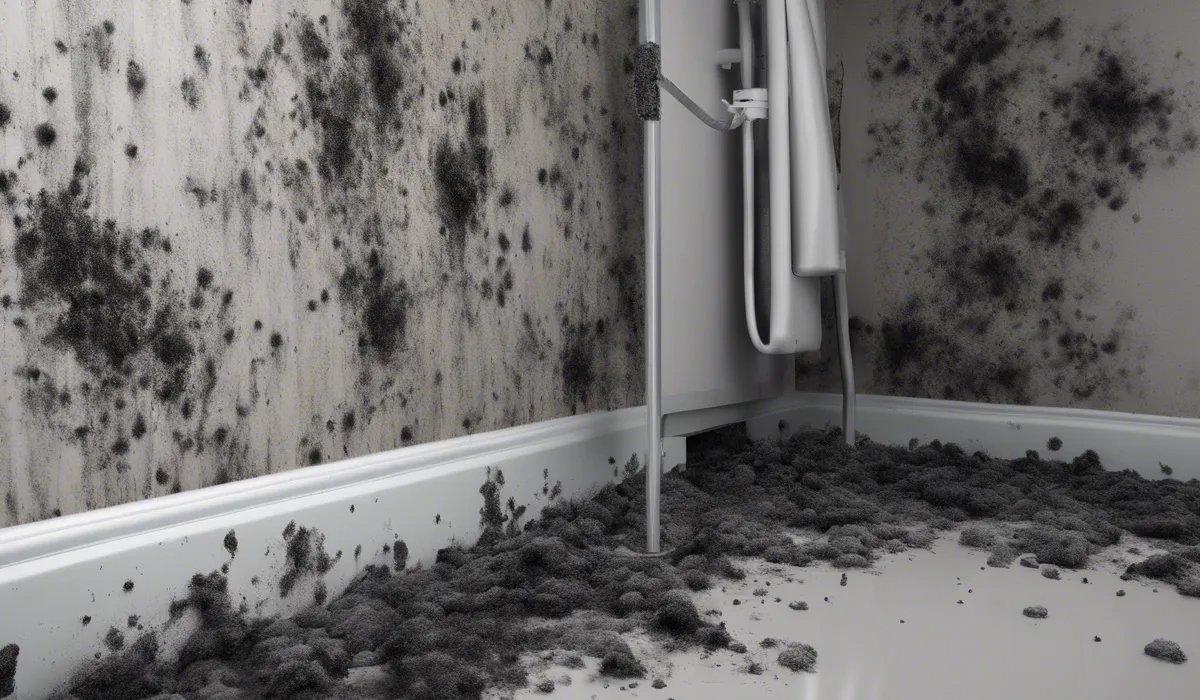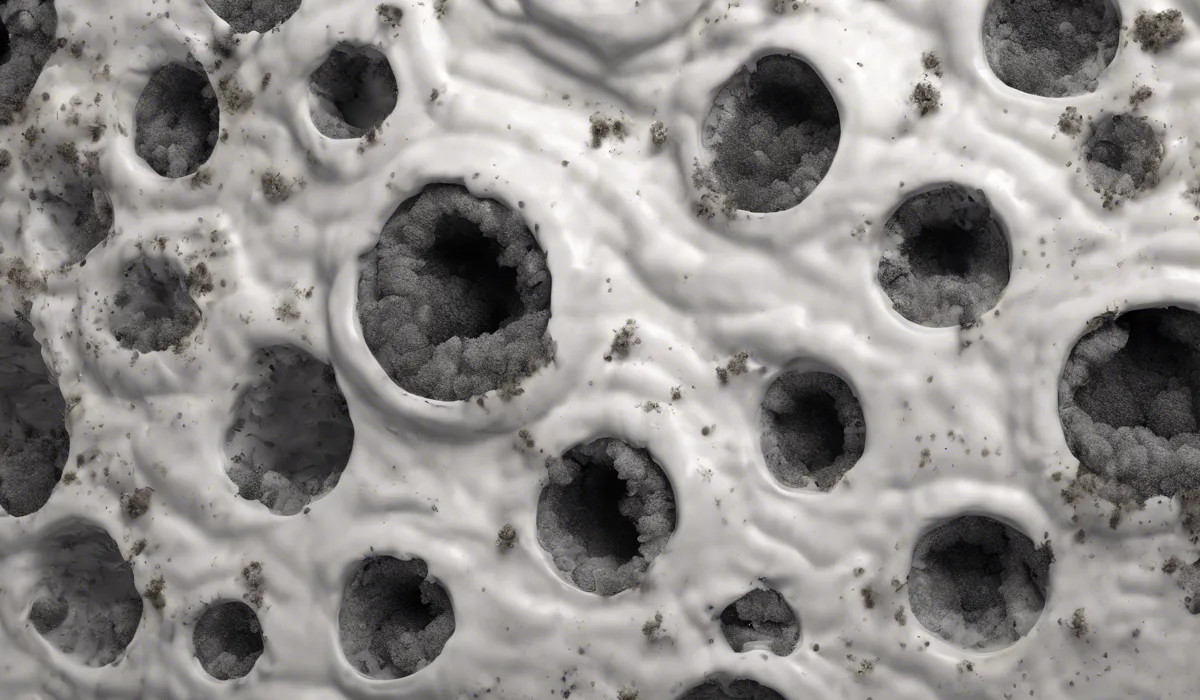Yes, black mold can cause headaches. Exposure to black mold spores releases mycotoxins, which, when inhaled, may lead to health issues including headaches, especially in sensitive individuals or those with mold allergies.
Understanding Black Mold and its Health Impacts

What is Black Mold?
Black mold, scientifically known as Stachybotrys chartarum, is a type of fungus that thrives in damp, humid environments.
This dark-colored mold can grow on various materials, especially those high in cellulose like drywall, carpet, or insulation that has been exposed to moisture.
Black mold is notorious for its potential to cause health problems.
Where Does Black Mold Grow?
Black mold often appears in places that stay wet. You might find it in bathrooms, kitchens, or basements.
It loves leaking pipes, flooded areas, and any spot where water has soaked into the building materials. If you see or smell something musty, black mold might be hiding there.
Mycotoxins: The Toxins of Black Mold
Mycotoxins are nasty chemicals that black mold creates. These toxins can float in the air and, when breathed in, may make people sick.
Mycotoxins from black mold are not something to take lightly, as they can affect your health in several ways.
Health Effects of Black Mold
When people talk about the dangers of black mold, they often mention problems like coughing, sneezing, and itchy eyes.
Some folks might get a rash or feel tired. For those with asthma or allergies, these symptoms can be even more severe.
Who Is at Risk?
Anyone can feel the effects of black mold, but some people are more likely to have problems.
Babies, older adults, and anyone with a weak immune system or allergies to mold might get sick more easily.
If you have lung issues or your body has trouble fighting off germs, you should be extra careful about mold.
The Link Between Black Mold and Headaches

How Black Mold Causes Headaches
When you breathe in black mold spores, they can irritate your nose, throat, and lungs. This irritation can trigger headaches, which are often a sign that your body is trying to fight off something harmful.
If you get headaches and you’re around mold, the two might be connected.
Symptoms of Mold-Related Headaches
Headaches caused by mold can feel like a constant pressure in your head. You might also feel tired, dizzy, or have a harder time thinking clearly.
These headaches can come and go, but if you’re always around mold, they might happen more often.
Research on Mold and Headaches
Scientists have done studies that show a link between mold and health problems, including headaches.
They’ve found that people living in moldy homes often report more headaches. While more research is needed, these studies suggest that mold and headaches could be related.
Telling Mold Headaches Apart from Other Headaches
It can be tricky to know if mold is causing your headaches. If you notice that your headaches get worse in certain places, like a damp basement, mold might be the reason.
Also, if you feel better when you’re away from those places, it’s a good hint that mold could be the cause.
Prevention and Remediation of Black Mold to Alleviate Headaches

Stopping Black Mold Before It Starts
Keeping your home dry is the best way to stop black mold from growing. Fix leaks, use fans in the bathroom, and make sure your home has good air flow.
If you keep things dry, black mold is less likely to move in.
Finding and Fixing Mold Problems
If you think you have mold, look for spots that are discolored or smell musty. You might need to check behind furniture or in other hidden places.
Once you find it, you’ll need to clean it up and keep that area dry to stop the mold from coming back.
When to Call the Pros?
Sometimes, the mold is too much for you to handle on your own. If the moldy area is big, or if you’re not sure how to clean it safely, it’s a good idea to call a professional.
They know how to get rid of mold without spreading it or making things worse.
Keeping Your Health in the Long Run
Living in a mold-free home is important for your health over time. If you don’t take care of mold, it can keep making you sick.
Taking steps to prevent and clean up mold can help you stay healthy in the future.
Reducing Mold Exposure for Better Health
To lower your chances of getting sick from mold, keep your home clean and dry. Use an air purifier if you need to and fix any water problems right away.
By doing these things, you can help keep headaches and other health problems caused by mold away.
FAQs About Black Mold and Headaches
Can exposure to black mold cause headaches?
Yes, exposure to black mold can cause headaches as one of the health issues related to inhaling mold spores that release mycotoxins.
What symptoms might indicate a black mold-related headache?
A headache related to black mold exposure can be accompanied by symptoms like dizziness, nausea, and a stuffy nose, especially in those with mold allergies or sensitivities.
How do mycotoxins from black mold cause headaches?
Mycotoxins from black mold can cause headaches by triggering an inflammatory response or irritation when the toxins are inhaled into the body.
Are certain individuals more prone to headaches from black mold exposure?
Yes, individuals with mold allergies, immune deficiencies, or respiratory conditions may be more sensitive to black mold and more prone to headaches and other symptoms.
Is it safe to stay in a home with black mold if I’m experiencing headaches?
No, it’s not safe. If you’re experiencing headaches that you suspect are caused by black mold, you should have the mold professionally removed and seek a safe environment in the meantime.
Final Thoughts
Black mold is known to release mycotoxins that can be harmful when inhaled. These toxins can cause a variety of health issues, including headaches, particularly in individuals with sensitivities or allergies to mold.
Understanding and mitigating exposure to black mold is important for preventing these adverse health effects.
